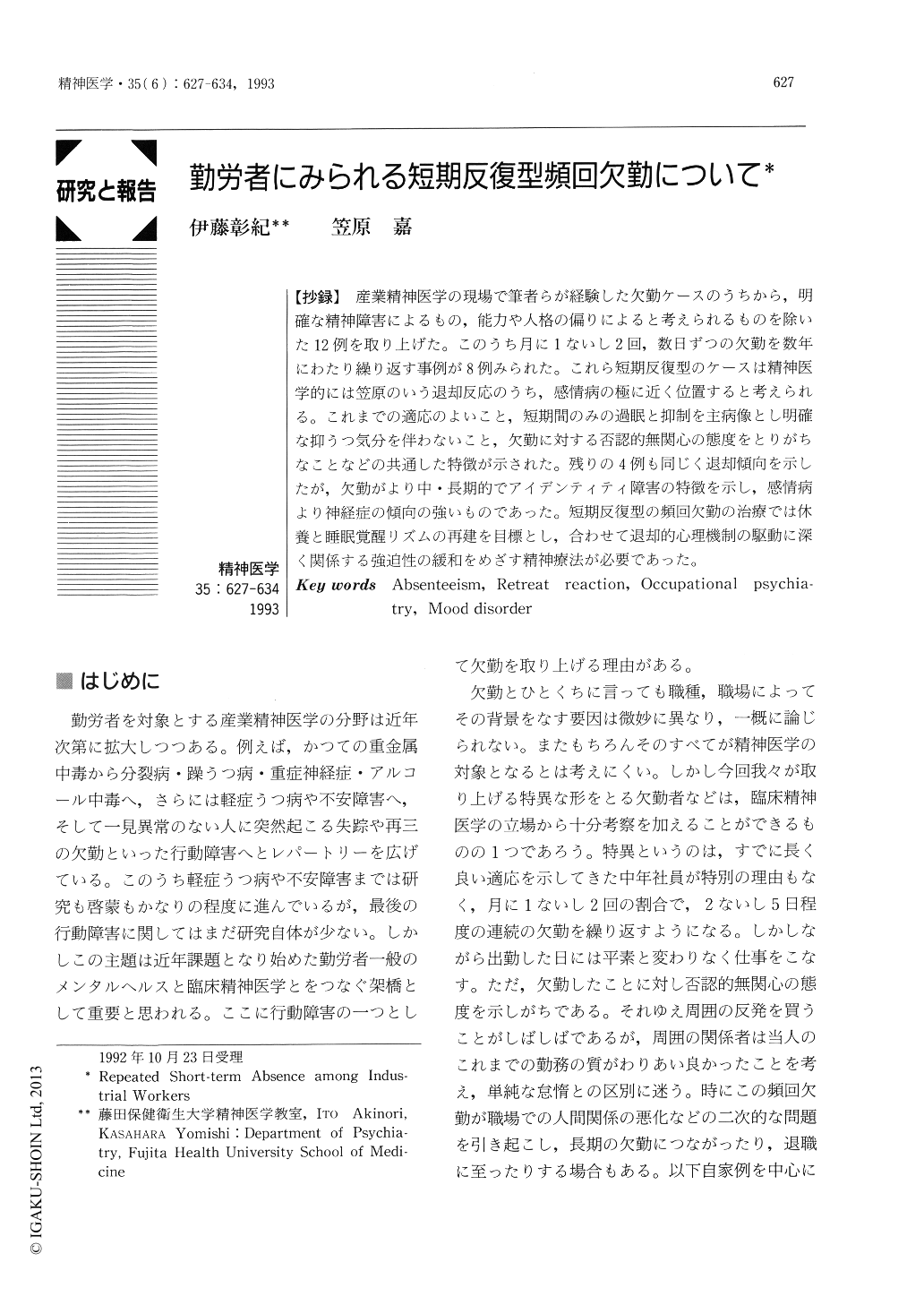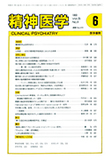Japanese
English
- 有料閲覧
- Abstract 文献概要
- 1ページ目 Look Inside
【抄録】 産業精神医学の現場で筆者らが経験した欠勤ケースのうちから,明確な精神障害によるもの,能力や人格の偏りによると考えられるものを除いた12例を取り上げた。このうち月に1ないし2回,数日ずつの欠勤を数年にわたり繰り返す事例が8例みられた。これら短期反復型のケースは精神医学的には笠原のいう退却反応のうち,感情病の極に近く位置すると考えられる。これまでの適応のよいこと,短期間のみの過眠と抑制を主病像とし明確な抑うつ気分を伴わないこと,欠勤に対する否認的無関心の態度をとりがちなことなどの共通した特徴が示された。残りの4例も同じく退却傾向を示したが,欠勤がより中・長期的でアイデンティティ障害の特徴を示し,感情病より神経症の傾向の強いものであった。短期反復型の頻回欠勤の治療では休養と睡眠覚醒リズムの再建を目標とし,合わせて退却的心理機制の駆動に深く関係する強迫性の緩和をめざす精神療法が必要であった。
Twelve male cases who were referred to the authors for absenteeism are presented. 8 cases who repeated short-term absences shared the following common characterics,
1) They were honest and diligent workers who had shown good adaptation before the onset of absenteeism. 2) They repeated 2 to 5 day periodsof unscheduled absence once or twice a month with the excuse of minor physical symptoms. 3) They had difficulty in awakening, hypersomnia, and psychomotor retardation during the periods of absence. A subjective feeling of depression was often non-existent or mild. 4) They kept a normal level of functioning at work and in their private life between the periods of absence. 5) They did not regard absence as a serious problem. 6) Their long term course was generally good. 6 cases returned to their work and showed no more absenteeism after the treatment. Another 2 cases had partial recovery.
They did not meet the full picture of Major Depression, Somatization Disorder or Adaptation Disorder. The only DSM-Ⅲ-R diagnoses we could apply to them were Depressive Disorder NOS and Undifferentiated Somatoform Disorder. However, the authors think that the diagnosis ofRetreat Reaction or Retreat type of depressive disorders (Kasahara) would be most suitable. It was also of interest that they shared the features of rapid-cycling affective disorder (Dunner) and recurrent brief depression (Angst, Montgomery) except that they did not experience prominent depressive moods.
The main part of the treatment consisted of assuring they took appropriate rest and encouraging them to acquire regular sleep-wake rhythm. It took 3 to 6 months for this purpose. A low dose of antidepressant was prescribed. In some cases sick leave for as long as a year and a half was necessary. Also supportive psychotherapy to ease their obsessive attitude and help them face reality was effective.

Copyright © 1993, Igaku-Shoin Ltd. All rights reserved.


